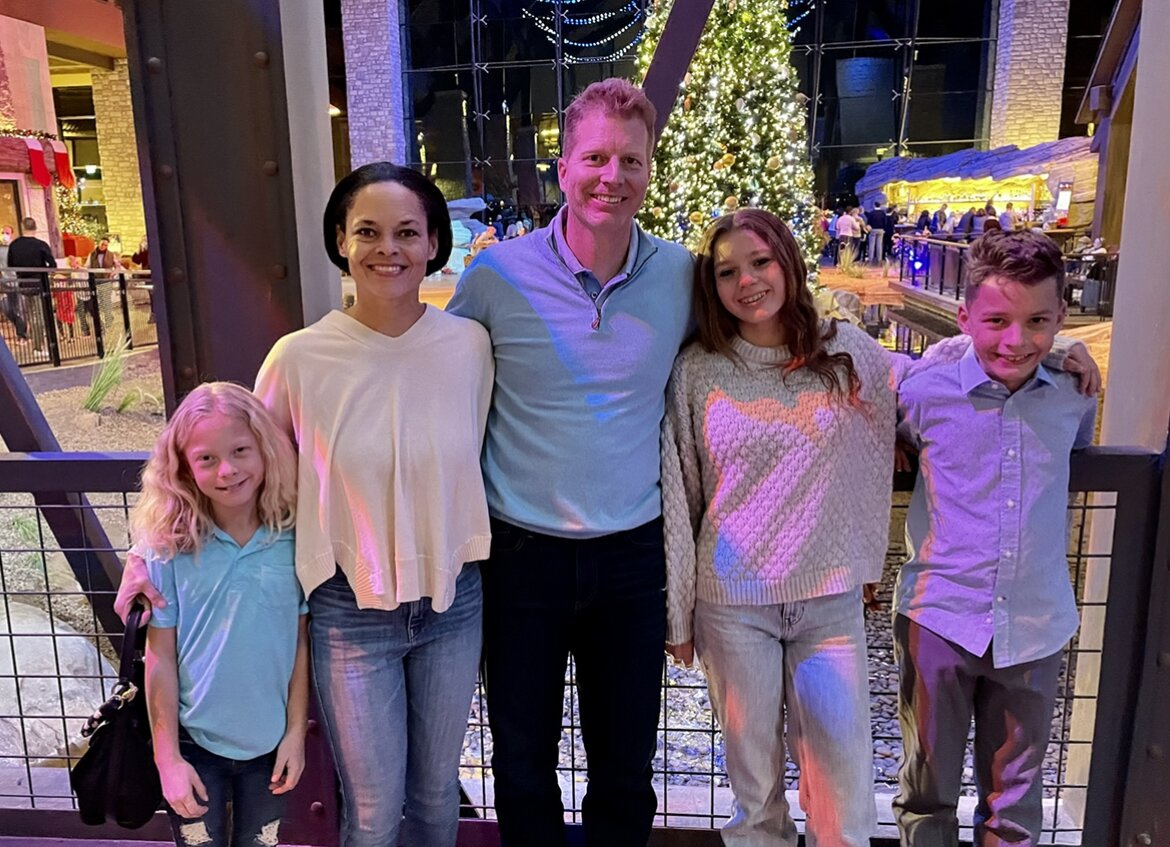Rocky Mountain PBS journalist shares her story of addiction and recovery

DENVER — I’m not anonymous anymore. I’ve taken my story out of dark church basements to shine a light on my experiences. I’ve given keynote speeches in ballrooms filled with hundreds of counselors and health care workers. I’ve participated in public service campaigns. I’ve shared my story with friends and family in person and over social media.
Next month I will have six years in recovery from opiate pain killers and alcohol. On August 28, 2016, my husband decided he’d had enough and kicked me out of our house. Less than a week later I ended up on an airplane to south Florida for my third time in drug treatment in under two years. I was alone — I had no phone, no wallet, no money. My husband told me I had to stay away for at least three months and that if I didn’t figure out a way to get better, I might not be able to return home. I took those three months to start healing, to lean into my pain that I’d been trying so hard to numb, and figure out its root causes which ultimately came from childhood trauma.
If you or someone you know needs help with addiction or recovery, you can find a list of resources by clicking here.
Dana's story is a part of an episode produced by Rocky Mountain PBS called "Colorado Voices: In Recovery".
It airs Thursday, July 21 at 8 p.m. on Rocky Mountain PBS. You can watch the preview below.
I was molested at the age of five by the teenage son of a caregiver. From that point, part of my emotional development stopped, and a void opened up in my heart. I spent most of my life trying to fill that space by attempting to achieve some form of perfectionism, which for several years manifested into eating disorders. Then I discovered opiate pain killers after they were prescribed post-surgery for a labral tear in my right hip. From the first time I took them, my first thought was ‘THIS is what I’ve been waiting for my entire life.’ It was perfect. I found perfection in a feeling.
Opiates gave me euphoria and energy. They helped me keep up with my life. I could do it all; be the perfect mom, the perfect wife, the perfect cook with a perfect house. But it was awful because after a few months they stopped working and I had to take more and more just to feel normal.

Eventually, an even worse cycle started. To avoid the terrible withdrawal symptoms from opiates (cold/hot sweats, nausea, flu symptoms, body aches, insomnia, paranoia, stomach pain, diarrhea, and leg cramping), I would drink alcohol. It didn’t take me long to figure out that alcohol could numb all of those symptoms. If my kids didn’t have anywhere to be after 5 p.m.; I would start drinking in the evenings when I ran out of opiates. That pendulum cycle went back and forth for almost a year. I’d be able to stop all substances for a few days, but the withdrawal from opiates would get so bad that I’d start drinking again.
After three months in treatment, I learned how to cope with my trauma and process the things that trigger me. But I knew that I had to find a way to maintain my sobriety and live my life. I discovered that there is no one way to recover from addiction. There are many solutions. I found mine in a practice called transcendental meditation. It’s my main form of self-care. It enables me to release stress and decompress my nervous system everyday so that I can adapt to the demands and changes of life.
I also no longer use the words ‘self-improvement;’ instead I use the word ‘evolution.’ ‘Improvement’ implies that this is all a linear process and it’s not. It took me three times in rehab to finally “get” how to do sobriety. What I figured out is that it has nothing to do with staying sober. It has to do with getting my mind right so that I no longer need the drugs and alcohol to cope with life.
Now I put myself first, even before my three kids because if I’m not healthy, I can’t take care of them. Now I laugh louder. I love harder. I listen better. I rest more. I no longer try to have it all, do it all or be it all. I’m just me and whether it’s too much or not enough for people is on them.
Since I got out of treatment in 2016, I’ve had 20 friends die of overdoses after relapsing and two die by suicide. I often wonder, "Why not me?" Part of the reason I’m not anonymous anymore is because of them. I want my friends who’ve passed to know — wherever they are — that I speak up for them. For me, their deaths aren’t in vain. I know they tried.
Another reason I’m not anonymous anymore is because I want all the introverts, dreamers, sensitives, people with depression, anxiety, addiction, eating disorders or any other mental health issue to hear me and see me, so that they can hear and see themselves and not be afraid to ask for help.
Dana Knowles is a multimedia journalist at Rocky Mountain PBS and can be reached at danaknowles@rmpbs.org.